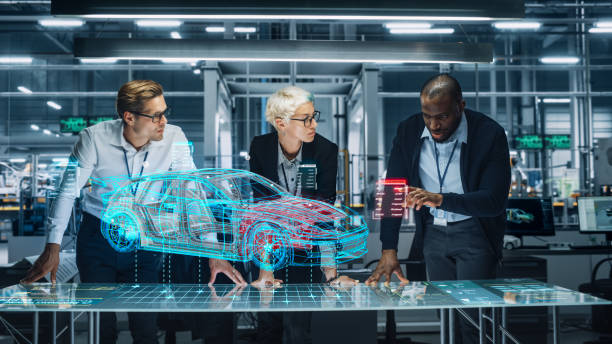The automotive industry is transforming significantly as electric vehicles gain popularity worldwide. As concerns about climate change and pollution increase, more and more consumers are turning to electric vehicles as a sustainable transportation option. The electric vehicles market’s growth profoundly impacts the automotive industry, from manufacturing and supply chains to sales and marketing. This article will explore the impact of EVs on the automotive industry and how this transformation is shaping the future of transportation.
Manufacturing and Supply Chain
The shift towards electric vehicles is forcing traditional automakers to adapt their manufacturing processes to meet the demands of the new market. One of the main challenges in electric vehicle production is the sourcing and production of batteries, which are the most expensive component of electric vehicles. Automakers invest in battery production facilities through partnerships or in-house development to reduce costs and increase efficiency. Tesla, for example, has built its battery factory, the Gigafactory, to produce EV batteries. Meanwhile, traditional automakers like Volkswagen and General Motors invest billions of dollars in battery production partnerships to secure their supply chain.

electric vehicles production also requires different skills and expertise than traditional gasoline-powered vehicles. For example, EVs require expertise in electric drivetrains and battery technology, which are not widely available in the automotive industry. Automakers are investing in training programs and partnering with universities to develop specialized courses in electric vehicles technology to address this.
Sales and Marketing
The growth of the EV market is also impacting sales and marketing strategies in the automotive industry. Traditional automakers are shifting their focus towards EVs, promoting their environmental benefits and technological advancements. This includes investing in EV advertising and marketing campaigns and training sales staff to educate consumers about the benefits of EVs.
In addition to traditional automakers, new players like Tesla and Chinese EV manufacturers like NIO and BYD are entering the market. These companies are disrupting the traditional dealership model by selling directly to consumers, bypassing traditional dealerships. This model allows these companies to control the customer experience and provide a more personalized buying process.
Future of Transportation
The growth of EVs is also shaping the future of transportation, from the design of vehicles to the infrastructure needed to support them. The shift towards EVs drives innovation in vehicle design, focusing on reducing weight and increasing efficiency. This includes using new materials, such as carbon fiber and aluminum, and developing new vehicle architectures, such as skateboard platforms.
Infrastructure for charging EVs is also being developed due to the increase in EVs. The availability of charging stations is essential for EV adoption, as range anxiety is a significant concern for many consumers. Governments and private companies are investing in charging infrastructure, focusing on fast charging technology and developing charging networks that can cover long distances.
In conclusion, the impact of EVs on the automotive industry is significant and far-reaching. The shift towards EVs forces traditional automakers to adapt their manufacturing processes and drives innovation in vehicle design and infrastructure development. The growth of the EV market is also impacting sales and marketing strategies, with traditional automakers and new players promoting the benefits of EVs. As concerns about climate change and pollution continue to grow, the shift towards sustainable transportation options like EVs will likely continue, shaping the future of transportation for years to come.